-
Overview
-
Context, Rationale & Significance
-
Objectives and Outcome
-
Session Plan
-
Resource Person
-
Important Information
-
Feedback of IKS 2024
-
Poster and Brochure
UNDERSTANDING INDIAN KNOWLEDGE SYSTEMS
30 hours – Online Certificate course from
Centre for Heritage of Intelligence Traditions of India (CHITI)
An Indic Study and Research Centre of
Narmada College of Management, Bharuch, Gujarat
15th August, 2025 to 20th November 2025
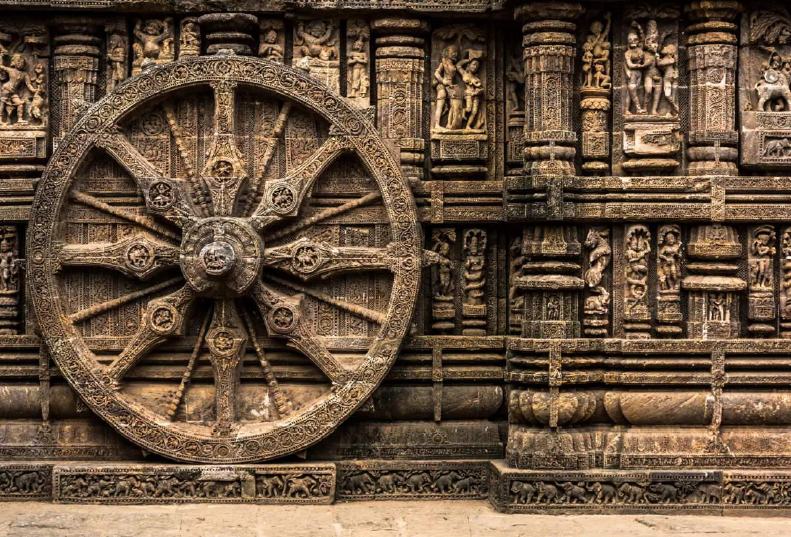
Course Registration Link: https://forms.gle/gkr5oerwwjN6ra7o9
यतो वाचो निवर्तन्ते अप्राप्य मनसा सह।
आनंद ब्राह्मणो विद्वान् न विभेति कुतश्चन्॥
Taittiriya Upanishad, 2.9.1
(In an attempt to express the bliss of Brahman), Speech returns baffled, unable to grasp it, the Mind is unable to attain it. The knower of the Brahman fears none.
एको वशी सर्वभूतान्तरात्मा एकं रूपं बहुधा यः करोति।
तमात्मस्थं येऽनुपश्यन्ति धीरास्तेषां सुखं शाश्वतं नेतरेषाम् ॥
Katha Upanishad, 2.2.12
The Eternal One, becomes many, residing in the inmost self of all beings. Happiness belongs only to the Seer who is able to experience and see this One among All, not to others (who are unable to experience this Oneness)
Life creates institutions; institutions do not create, but express and preserve life. This is a truth we are too apt to forget…The fond attempt to become great, enlightened and civilized by borrowing European institutions will be an equally disastrous failure
-Sri Aurobindo
In 2000 years of economic history, India contributed to almost 40 % of the world GDP for 1000 years and remained a major economic power till 1850. It is only in the last 150 years that it lost this position and became a marginal player in world trade. This superlative economic performance was achieved without the abuse and exploitation of nature which we are a witness to since the industrial revolution of Europe till present. This was a model of life in which economic growth and ecology were not positioned against each other. How this was conceived and achieved in reality? What was the vision of the rishis, our forefathers, who conceived, designed and developed a way of life which is based on reverence for all existence? What was their understanding about life and its meaning?
Ananda Coomaraswamy, in his article on What has India Contributed to Human Welfare, which is included in his book, The Dance of Shiva, observes, “The heart and essence of the Indian experience is to be found in a constant intuition of the unity of all life, and the instinctive and ineradicable conviction that the recognition of this unity is the highest good and the uttermost freedom. All that India can offer to the world proceeds from her philosophy. This philosophy is not, indeed, unknown to others – it is equally the gospel of Jesus and of Blake, Lao Tze, and Rumi – but nowhere else has it been made the essential basis of sociology and education.”
The genius of the Indic way of life was not the discovery of the infinite and the eternal in the finite world, but this discovery and understanding was used to design a culture and civilization which aimed to realize this infinite and eternal aspect for every human life. Again, to quote Coomaraswamy, “Where the Indian mind differs most from the average mind of modern Europe is in its view of the value of philosophy. In Europe and America, the study of philosophy is regarded as an end in itself, and as such it seems of but little importance to the ordinary man. In India, on the contrary, philosophy is not regarded primarily as mental gymnastics, but rather, and with deep religious conviction, as our salvation (moksha) from the ignorance (avidya) which forever hides from our eyes the vision of reality. Philosophy is the key to the map of life, by which are set forth the meaning of life and the means of attaining its goal. It is no wonder, then, that the Indians have pursued the study of philosophy with enthusiasm, for these are matters that concern all.”
To make a small effort in this direction of understanding and interpreting the vast intellectual knowledge of our seers and sages, we offer a 30 hrs, online Certificate course on Understanding Indian Knowledge Systems
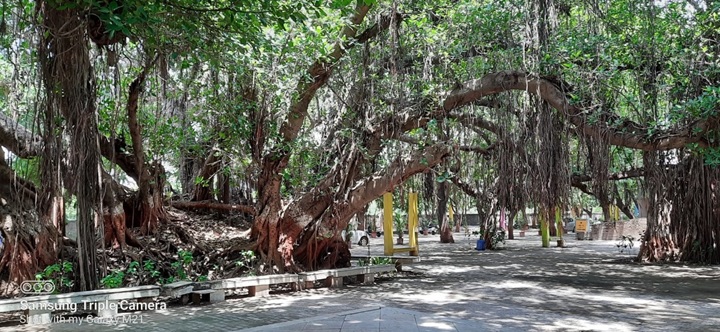
Indian civilization is like an eternally old banyan tree, spreading its branches deep, far and wide all around the world. It is the oldest surviving tree in the garden of humanity, overlooking the millenniums and being a silent witness of all the seasons of world life. By being near it, knowing and understanding it, we also can experience a glimpse of the eternal within us, know and understand that part of us which is in time but also beyond time, which is in space but transcends space. Once known and understood, we become one with the eternal or Sanatana within us.
CHITI, Narmada College of Management
Bharuch – Shukla Tirtha Road, P O Zadeshwar, Bharuch – 392011
Phone: 02642-230595, Mobile: 9408069039, 7405224435
Email: subhashyadav@ncmbharuch.ac.in, rakeshpanchal@ncmbharuch.ac.in
Website: www.ncmbharuch.ac.in
Context and Rationale:
In the present context, we have a knowledge culture where all the important theories and frameworks of thinking have been imported from the West and we merely ape or at best adapt these theories to suit our reality. Our structures of business, government, education and research have been built and are sustaining themselves on these frameworks. If the developed world opened its doors to all of us, a high proportion of our business, political and educated elite would perhaps themselves prefer to migrate to these supposedly prosperous and functioning areas of the world.
This has also resulted in a situation where most of us, either in education, business or policy making, just play act ritualistically standard foreign prescriptions to our local problems which have no meaningful relation to our reality and without a larger purpose for our benefit. In this process of imitation, so called development of our society, the innate talent, resources and skills of our people are being continuously eroded. There is not a single example of any nation becoming great and powerful by borrowing and imitating concepts, theories and organization structures from an alien knowledge tradition.
Significance:
“We are not all deceived by the illusion of progress, but, like some of our European colleagues, desire “the coming of better conditions of life, when the whole world will again learn that the object of human life is not to waste it in a feverish anxiety and race after physical objects and comforts, but to use it in developing the mental, moral, and spiritual powers, latent in man.”
– S C Basu, quoted by Coomaraswamy.
This course introduces the learners to the rich and varied knowledge traditions of India from antiquity to the present. This also helps the learner to know and understand their own systems and traditions which are imperative for any real development and progress helping them to think independently and originally with Indian frameworks and models for solving the problems of present day.
Course Objectives:
By the end of the Course, participants will be equipped with the knowledge and understanding related to:
- Indian Knowledge Systems: Origin, Evolution and their unique approach towards understanding Reality
- Introduction to Sanskrit Language and the Vedic Corpus
- Indian Knowledge Approaches Towards: Time, Language, Knowledge, Environment,
- Indian Sciences of Life and Mind
- Self-Exploration and Self Knowledge for Personal Effectiveness: The Indian Approach
- Indian Knowledge System Torchbearers – Ancient and Modern
Course Outcomes:
For Students:
- Digital Certificate from CHITI and Narmada College of Management – Course of 30 hrs
- They will understand and appreciate the rich heritage that resides in our tradition
- Inculcate Self Understanding within the student in the light of Indian Knowledge Approaches
- Learn to appreciate the need and importance of Sanskrit in getting to the roots of the philosophical concepts
- Being primed for practices that will prepare one for the inner-journey to discover the Self
For Teachers:
- Digital Certificate from CHITI and Narmada College of Management
- To improve mindfulness and cultivate understanding, ultimately leading to effective process of teaching
- Learn to integrate these teachings in their day-to-day living
- Learn to appreciate the origin and development of Indic thought and practices from ancient to current times
For Others:
- Digital Certificate from CHITI and Narmada College of Management
- Understand the context of Indian way of Life and Living and its relevance to the present
- Become familiar with Yoga psychology as a pathway to self-knowledge and transformation
- Being primed for practices that will prepare one for the inner-journey to discover the Self
- Personal effectiveness leading to their organizational effectiveness
What do you get along with the Course:
- Well-Researched Course Handout and Material related to IKS
- Understanding of the history and evolution of Indian Intelligence Tradition
- How to apply this knowledge to relate to personal and institutional life
- Resources (E-Books & Articles) on Indian Knowledge Systems
- Links to video and audio lectures on IKS
DETAILED SESSION PLAN OF THE COURSE
 |
Introduction: Indian Knowledge Systems–(2+2 hrs)
Conception and Constitution of Knowledge in Indian Tradition, The IKS Corpus, Knowledge Maintenance and Renewal Mechanisms, Nature and Character of Knowledge, Nature of Reality, Conception of Reality, Means of Knowledge of Reality –Plato’s Cave vis a vis Indian view of Reality, Some unique aspects of Indian Knowledge Systems
|
|
| Sanskrit Language and Literature -(2+2 hrs)
Sanskrit Language – Origins, Structure and Unique Characteristics of the Sanskrit Language, Sanskrit Metrics, Concept of Vak and Mantra in Sanskrit Language, Role of Sanskrit in NLP The Vedic Corpus – Veda and Vedangas, Bharatiya Darshana, Purana, Itihasa v/s History, Niti Shastra and Subhasitas
|
 |
|
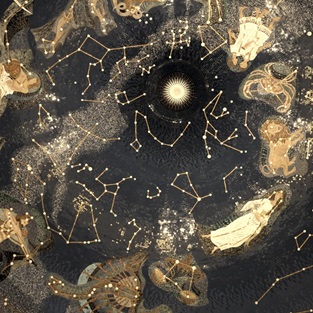 |
Indian Knowledge Approaches-I (2+2 Hrs)
Time – Concept of Kala, Cycles of Time, Measurement of Time, Knowledge of Time – the Science of Light Language – Components of a language, Logic for Sentence Construction, Phonetics, Sadhu and Asadhu words, Levels of Speech,
|
|
| Indian Knowledge Approaches-II (2+2 Hrs)
Knowledge Framework & Classification: Pramana, Prameya and Samasya, Framework for establishing Valid Knowledge Environment – Concept of Nature in Indian Tradition, Panch bhutas – Elements of Nature, Concept of Rta, Sacred Environment, Panchvati
|
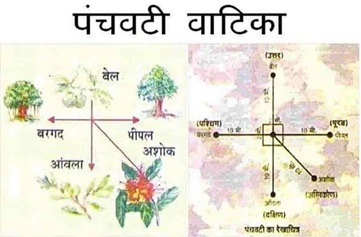 |
|
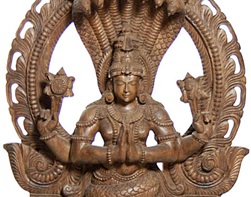 |
Sciences of Life and Mind (2+2 Hrs)
The Science of Life – History and Basic Principles of Ayurveda, Prana, Ojas and Tejas, Health, Balance and Routine in Ayurveda The Science of Mind – Origin, Nature and Evolution of Yoga, Types and Schools of Yoga, Yoga Darshana
|
|
| Self-Exploration and Self Knowledge – I (2+2 Hrs)
The Eternal Quest for Meaning – Introduction to Upanishads, Major Upanishadic Texts, Message and Relevance of the Upanishads Katha Upanishad – The story of Nachiketa, Dialogue with Yama, Teaching of Yama to Nachiketa, Relevance for present times
|
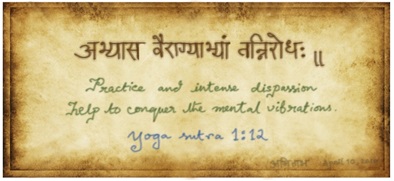 |
|
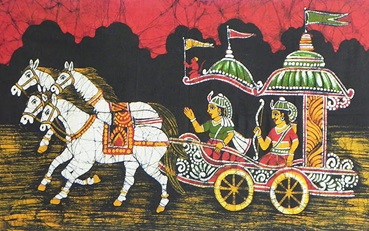 |
Self-Exploration and Self Knowledge – II (2+2 Hrs)
Bhagwada Geeta – The difficulty of being good, Setting and Background, The Path to Realization, Contemporary relevance of the text, Some IKS Concepts in Bhagwada Geeta The Secret of Eternal Happiness- Yoga Sutra of Patanjali, The Path to Freedom – Samadhi, Sadhana, Vibhuti and Kaivalya. Theory and Practice of Yoga Sutra.
|
|
|
IKS Torchbearers (2 Hrs) Ancient – Sankara, Nanak, Tulsi, Caitanya Modern – Dayananda, Ramakrishna, Sri Aurobindo, Ananda Coomaraswamy
|
 |
|
30 hours of interaction spread over 15 weeks
Classes on every Thursday Evening 6:00 PM to 8:00 PM
Faculty:
Dr. Subhash Yadav, Associate Professor, Narmada College of Management, will be the faculty for this course. In the previous edition 2024 of the course Dr. Rajnish Mishra, Professor, JNU, New Delhi, Dr Rajsekhar Krishnan, Consultant Bangalore, and Dr. Vandana Khurana, Professor of Music, Rajasthan Sangeet Sansthan, Jaipur, were part of the guest faculties for the course.
For any clarifications/details please feel free to contact: subhashyadav@ncmbharuch.ac.in, rakeshpanchal@ncmbharuch.ac.in Cell No. 9408069039, 7405224435
This certificate course is being offered from the Centre for Heritage of Intelligence Traditions of India (CHITI) an Indic study and research center of Narmada College Campus. The center is located on the banks of Maa Narmada, with a more than 300-year-old banyan tree in the campus as its inspiration, at the building of Narmada College of Management, a constituent College of Narmada College Campus. The center has a small library related to various aspects of Indian Knowledge Systems and Indian Civilization. Work on a Digital Library of articles, books and a monograph on Indian Intelligence Traditions is in progress. A discussion cum counseling room is available for visitors and guests to get more information about Intelligence and Knowledge traditions of India.
We invite you to join us in this journey of self-exploration and self-discovery of our culture. We will keep you informed of the latest happenings and events conducted under this center. Join us by filling this registration form.
IMPORTANT INFORMATION ABOUT THE COURSE
- Medium of discussion in the sessions: English/Hindi
- Eligibility: Anyone interested in the contents of the course.
- The minimum contribution for the course is Rs. 2001/-.
- Fees is to be paid to: Account name: Narmada College of Management, Account No. 13140200000037, Bank of Baroda, IFSC Code: BARB0GNFCOM
- The duration of this course is 15 weeks of teaching-learning with 30 contact hours, spread over a period of 3 months, from Inaugural Session on Friday, 15th August, 2025 to 20th November, 2025
- Online classes will be held on every Thursday, 6.00 pm to 8.00 pm – 2 hrs per week. The last 30 minutes of the session will be for live interaction and question answers. Detailed session wise plan will be shared with the registered students.
- Classes will be conducted online via google meet. The participants will have to ensure the availability of proper device and internet connectivity for attending the classes.
- The online session recordings will be made available to the registered students of the course. Additional reading material in E-book format, power point presentations, developed for this course will be shared with the participants.
- The Evaluation will be based on attendance in the sessions, completion of a course project, group discussion and a final online examination at the end of the course.
- Digital Certificate from CHITI and Narmada College of Management will be provided to the students who have 80% attendance and a qualifying score of 60% in project and the final examination.
- Link for Registration of the course: https://forms.gle/gkr5oerwwjN6ra7o9
FEEDBACK RECEIVED FOR INTRODUCTION TO INDIAN KNOWLEDGE SYSTEMS – 2024
The entire journey was like a Chappan Bhog (of Indian Knowledge) where every dish was served and after tasting each dish, one can decide that which one you want more and then delve deeper into it. The references given were very useful like that of Yogi Sri Krishnaprem, Ramdass, Sri Aurobindo and many other pioneers of IKS. Looking forward, I personally will be interested in taking one topic say Bhagwad Geeta, and especially the Dynaneshwari commentary by Sant Dynaneshwar on it.
-B Ramanan, Associate Professor, NMIMIS & Management Consultant, Mumbai
The classes were very interesting and interspersed with audio- video clippings, discussions and sharing by the participants. We were a quite heterogenous group of students, teachers, industry professionals, which made the learning quite good. I would certainly join the future courses by CHITI.
-Dr. Rajlakshmi Datta, Dayanand Brijendra Swaroop P G College, Dehradun
I did this course for the second time and I was able to delve deeper into the core concepts of Indian Knowledge Systems. I feel this is the real knowledge which leads us to a greater understanding of our outer and inner worlds leading to peace and joy in our life.
-K Ashok Chakravarthy, Operations Manager, GAIL India Limited, Rayagada, Odisha
IKS is not merely about knowledge, it is also embarking on a journey of spirituality and self-discovery. I think that this course has already set me on that path. I also realized that there is so much to learn and explore and I would be interested in future advanced courses related to IKS. I have been enriched a lot after completing this course.
-Dr Shalini Wadhwa, Associate Professor, NMIMIS, Mumbai
The Course was very well curated and being from an Architecture background, I was wondering in the beginning that how it will go ahead, but it was a very good experience, the core faculty and the guest resource persons were very knowledgeable and it enriched the learning of all of us.
-Architect Vaishali Latkar, Dr. Bhanuben Nanavati College of Architecture for Women, Pune
I thoroughly liked the journey of 15 weeks of this IKS course. It was interactive and discussion-based course where we learned and understood a lot. I would urge CHITI and Narmada College of Management to launch some advanced courses related to IKS.
-Dr. Mayura Patil, Satish Pradhan Dnyansadhana College, Thane, Mumbai
For a working professional like me, It was a totally new orientation towards our ancient knowledge systems. I thoroughly enjoyed all the sessions and for a couple of sessions which I missed, I had the session recordings with me, which allowed me to catch up later.
-Vijay Samala, HR Manager, Reid & Taylor, Bharuch
I also did this course for the second time. I am an industry professional working with an MNC; hence it was not related to my professional work, but it enriched me personally leading to a greater understanding of myself as a person and also about our ancient heritage. I will certainly join further courses whenever they are launched from the centre.
-Dilip Kumar, Regional Service Manager, Perkin Elmer India, Bharuch


